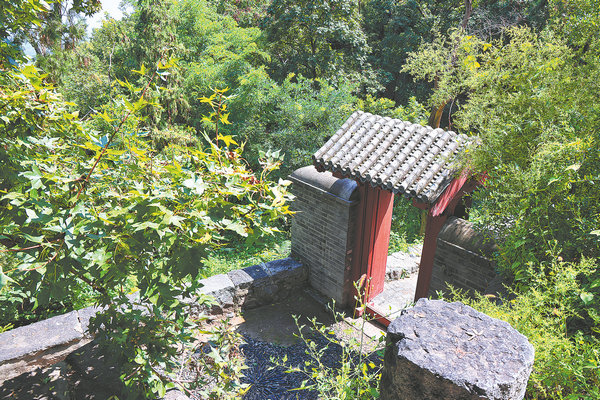

During the invasion by Japanese forces, Bussiere risked his life to purchase and transport medicine for the Communist Party of China's Eighth Route Army. As he gave medical advice to and treated many dignitaries and members of the social elite, he became a celebrity himself. Bussiere also treated those less well-off without charge and saved countless lives.
Due to his prestige and connections in the fields of Sino-French and Sino-foreign exchanges, as well as his generosity and hospitality, the"Bussiere Salon" at his home in Beijing naturally became an important social center frequented by celebrities from all walks of life. After the completion of Jardin Bussiere, many social activities at Bussiere Salon gradually moved from his courtyard home in Datianshuijing Hutong in downtown to the more beautiful Jardin Bussiere on Mount Xishan in western Beijing.
Among Bussiere's many friends was his lifelong companion and confidant, the Sinologist Andre d'Hormon. The duo facilitated the establishment of the Sino-French Friendship Association, the Sino-French University, and the Peking Research Institute. In his later years, the Sinologist painstakingly completed the French translation of Dream of the Red Chamber, introducing this classic Chinese masterpiece to France and the world.
Another friend of Bussiere was the young diplomat, Alexis Leger. Not only did Leger rise to the position of de facto head of the French Foreign Ministry in the two decades leading up to World War II but also his famous epic poem, Anabase, written on Mount Xishan, won him the Nobel Prize for Literature four decades later in 1960 under the pseudonym "Saint-John Perse".